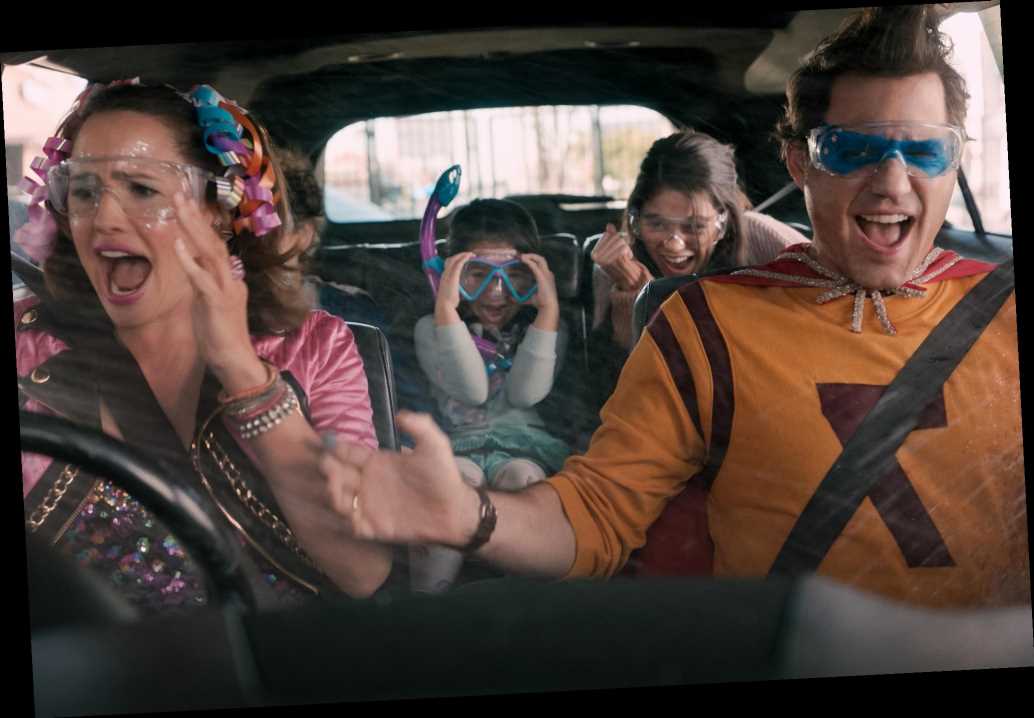More from:
Johnny Oleksinski
Broadway stars take to Times Square for 'hopeful' outdoor show
'Long Weekend' review: Twee romance with a clever twist
'The Father' review: Anthony Hopkins' best work in years
'Space Jam' cancelation sends us down a dangerous wabbit hole
Here are the front-runners for the 2021 Best Actress Oscar
“Some people gravitate toward ‘No,’ ” says Jennifer Garner in the asinine Netflix movie “Yes Day.” “Some people lean toward ‘Yes.’ ”
Her character leans toward dumb. She plays a hard-line mother named Allison, who staunchly refuses to let her three whiny children do much of anything. Deciding she’s gone too far, Allison crazily institutes a “Yes Day,” in which her brood calls all the shots and the woman and her husband must go along with their schemes.
Those headache-inducing indulgences include a water balloon war, a bubble-filled rager in the living room and devouring a giant platter of ice cream. The adults, who are biologically and financially responsible for their offspring’s existence, are forced to relent to their every whim.
You’ve got to be kidding me. You want us to tell kids “yes” more?
Young people today may be more coddled than in the past and, true, their parents hover over them like the drones they so desperately crave. But the absolute last words they need to hear more of right now are “yes,” “ja,” “si” or “oui.” These brats have grown up surrounded by a chorus of praise and positivity so constant that it can only lead to a generation of serial-killer Patrick Batemans.
Behavioral experts say the popular trend of positive parenting — think Amy Poehler in “Mean Girls — is worrisome for social development.
“Positive emotions are essential for building connections, but negative emotions are helpful in planning and higher-order-thinking kind of processes,” Kent State psychologist Karin Coifman told the BBC. “And they have been essential in human survival.”
Would you rather your son be your best bud, or that he survives the cruelty of the outside world?
Remember when teens worked jobs after school, mowed the lawn and learned lessons that only come via ingenuity and gumption? That bygone era wasn’t too long ago. Monday to Friday they’d bag groceries, and on the weekends dance the “Macarena.” Then, technology swooped in and screwed all that up.
Eight is the new 17 nowadays. Third-graders own smartphones, swipe credit cards and dress like “Big Brother” cast members. Mom and dad think they’ve solved the problem by instituting “screen time,” but ultimately they figure they can’t say “no” to the pull of mobile devices and computers. They know tech is so vital to their own lives, so why not their kids’, too? Yeah, let’s give ’em booze while we’re at it.
“No” is one of the most beautiful words in the English language. It prevents burnout by not overloading oneself with work. It cuts down on all matter of excess and creates incentives to drive us. So, mom said I can’t go get ice cream today? What can I do to turn that into a “yes” next time?
Perhaps the spate of positivity at home is why, in a 2019 study, 75 percent of Gen Z responders said they expected a promotion after just one year at a new job. Now that I’ve figured out the quirks of the coffee machine, make me vice president of sales!
Why wouldn’t they assume a raise? That line of “gimme gimme” thinking, like hungry babies, is all they’ve been taught.
Just say “No” to “Yes”!
Share this article:
Source: Read Full Article





